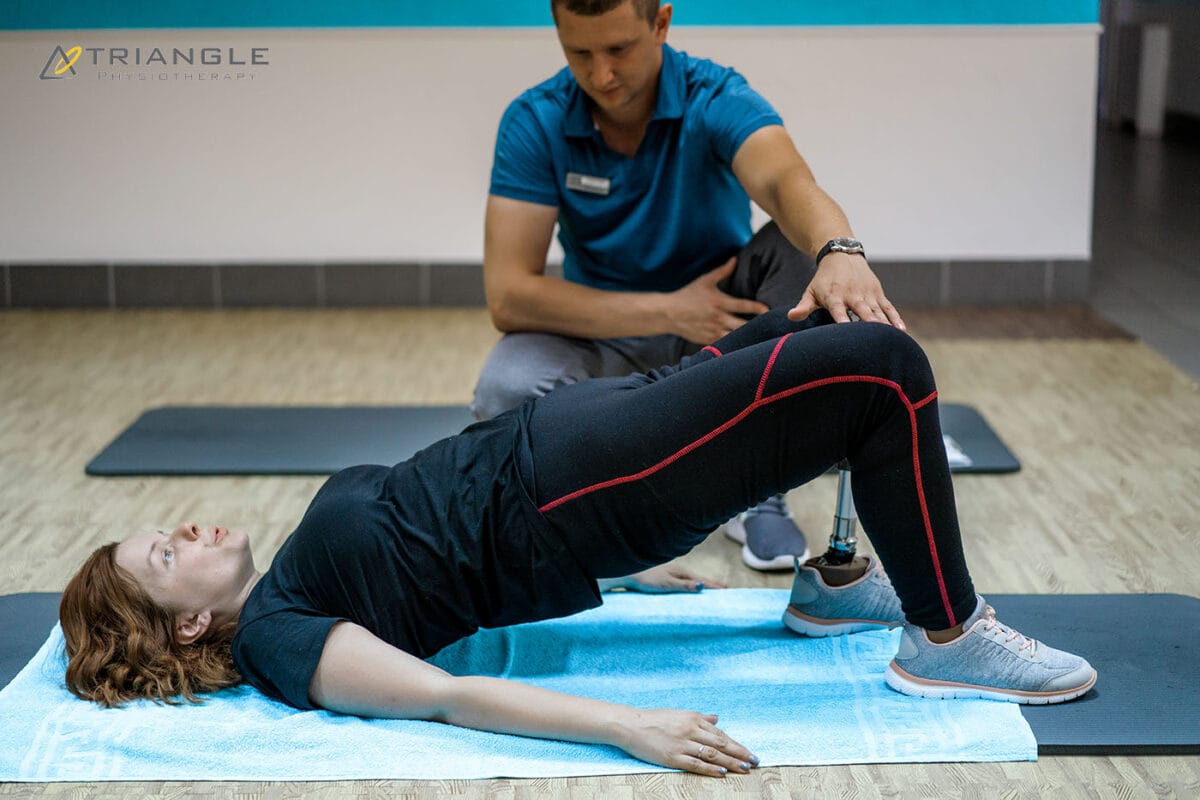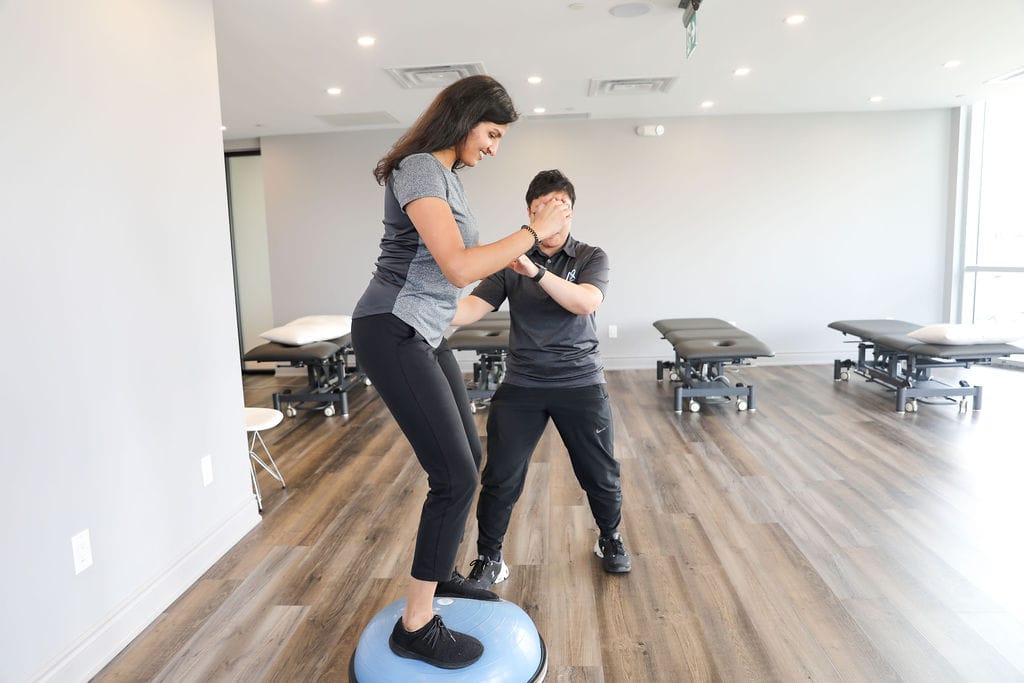Undergoing any type of surgery can be a daunting experience, especially when you are dealing with pain or discomfort in the lead-up to the procedure. For many patients, managing pain before surgery can be as crucial as the surgery itself, both in terms of improving the surgical outcome and enhancing recovery. Physiotherapy is an essential part of this pre-surgical care, providing strategies to manage pain, improve mobility, and prepare the body for the challenges of surgery and rehabilitation. The highly trained physiotherapists at Triangle Physiotherapy can advise you on strategies on managing pain before surgery and how it can help you feel stronger, more comfortable, and better equipped for recovery.
What is Pre-Surgical Physiotherapy?
Pre-surgical physiotherapy, often referred to as “prehabilitation,” is the practice of preparing the body before surgery through a series of targeted exercises, education, and therapies. The goal is to improve physical fitness, increase mobility, and reduce pain prior to undergoing surgery. By strengthening muscles, improving joint mobility, and reducing stress on affected areas, prehabilitation can make the body more resilient during the recovery process and even reduce the risk of complications after surgery.

The Importance of Managing Pain Before Surgery
Chronic pain, whether from conditions like arthritis, injuries, or musculoskeletal disorders, can be overwhelming and can negatively affect the body’s ability to heal post-surgery. Pre-surgical pain management is not just about addressing discomfort; it’s about setting the stage for a smoother recovery. Here’s why it’s essential to manage pain before surgery:
- Reducing the Impact of Surgery on the Body
Chronic pain can weaken muscles and joints, affecting overall mobility. If these issues are not addressed before surgery, they can impede recovery, increase stress on the surgical site, and lengthen the rehabilitation process. By managing pain pre-operatively, you can make the body more capable of handling the stresses of surgery. - Improved Post-Surgical Outcomes
Research has shown that patients who engage in pre-surgical physiotherapy tend to have better outcomes following surgery. They often experience reduced pain post-operation, faster healing, and a quicker return to normal activities. - Preventing Muscle Atrophy and Stiffness
When dealing with long-term pain, it’s common to limit movement in order to avoid discomfort. This inactivity can lead to muscle atrophy (weakening) and joint stiffness. Physiotherapy helps maintain and even improve strength and flexibility before surgery, ensuring the body is in the best possible condition for a smooth recovery.
How Physiotherapy Can Help Manage Pain Before Surgery
Physiotherapists are experts in movement and pain management, and they can develop tailored treatment plans that address the specific needs of each individual. Here’s how physiotherapy can help manage pain before surgery:
- Pain Relief Techniques
Physiotherapists use a variety of manual therapy techniques to reduce pain and improve joint function. These may include:- Massage therapy to relax muscles and reduce tension.
- Joint mobilizations to increase range of motion and alleviate stiffness.
- Myofascial release to address tightness and discomfort in the soft tissues.
- These techniques can help reduce the intensity of pain, making it easier to engage in exercises and movements that promote healing.
- Strengthening Exercises
Weak muscles can contribute to pain and difficulty moving. Physiotherapists can develop a customized exercise program to strengthen muscles around the affected joints, improving stability and reducing the strain on pain-prone areas. Strengthening key muscle groups ensures that the body is well-prepared for the demands of surgery and recovery. - Mobility and Flexibility Training
Stiffness in the joints and muscles can exacerbate pain and hinder movement. Physiotherapists incorporate stretching and flexibility exercises into pre-surgical programs to improve range of motion. Whether it’s the hips, knees, or shoulders, increasing flexibility can reduce discomfort and prevent further limitations, allowing for better post-surgical rehabilitation. - Postural Correction
Poor posture can put additional strain on joints and muscles, exacerbating pre-existing pain. Physiotherapists assess your posture and provide education on how to align your body correctly during daily activities. Proper posture can prevent unnecessary pressure on joints and muscles, reducing pain and discomfort before surgery. - Education and Pain Management Strategies
Physiotherapists teach patients how to manage pain more effectively through techniques like breathing exercises, mindfulness, and relaxation strategies. Additionally, they may provide advice on managing pain at home, such as the use of heat or cold therapy and ergonomic adjustments in daily activities.
When Should You Seek Pre-Surgical Physiotherapy?
If you’re preparing for surgery and are experiencing pain, stiffness, or limited mobility, it’s a good idea to seek physiotherapy before your procedure. The sooner you begin prehabilitation, the better the results. Ideally, pre-surgical physiotherapy should begin a few weeks to months before the surgery date. However, even if you’re closer to your surgery, starting physiotherapy as soon as possible can still provide significant benefits.
Where can I find a Pre-Surgical Physiotherapy clinic in Oakville?
Triangle Physiotherapy has 8 locations in the GTA, with a physiotherapy clinic in Oakville, located at 2501 Prince Michael Drive, Oakville ON L6H7V6.
Book your prehabilitation appointment today to ensure you get the best outcomes from your surgery.




